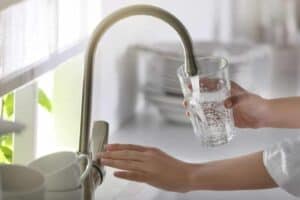The African Union Water Investment Summit was aiming to raise US$30 billion, but Minister Pemmy Majodina expects more will follow.

Minster of Water and Sanitation Pemmy Majodina has celebrated a collective pledge to inject over US$10 billion into African water projects.
The financial commitment was secured at the inaugural African Union Investment Programme (AIP) Water Investment Summit held in Cape Town last week.
The programme to address the continent’s water security was initiated in 2021, with the funds raised in the Mother City to be distributed among almost 40 different countries.
Continental investment
The water summit formed part of the wide-reaching engagements under the the banner of South Africa’s G20 presidency and featured international water ministers and African heads of state.
However, the amount raised through the three-day engagements between the nearly 1 700 delegates in attendance is just one-third of the amount sought by African leaders.
The water ministry confirmed that 80 projects across 38 countries were demmed a priority and subsequently attracted between US$10 and $12 billion in investment.
Majodina said more was expected, but that the grand amount envisioned for investment in Africa’s water security was US$30 billion — or R528 billion at this week’s exchange rate.
Majodina said the attendees identified finance, capacity and data gaps in the water sector, and urged government to break down regulatory barriers.
“Let us eliminate long and unnecessary red tape which undermines and discourages investment,” said the minister.
“We have also managed to showcase a pipeline of bankable water and sanitation projects to prospective funders and investors,” she boasted.
South African water woes
On Monday, Majodina did not reveal how much of the investment would be allocated to South Africa.
Johannesburg alone has previously reported the need for R37 billion to address its water infrastructure backlog.
Debt levels are also high, as during a Standing Committee of Public Accounts in June the department of water and sanitation noted that national municipal debt to water boards sat at R25 billion.
Regarding the human resources needed to resolve South Africa’s water infrastructure problems, the minister stated that the percentage engineers employed at municipal level had decreased from 84.6% in nineties, to 6.4% currently.
The Auditor General (AG) of South Africa last year stated that 71% of regional bulk water projects were delayed and that budgets had been inflated by at least R9.4 billion in the last 15 years.
“If the root causes for poor project management are not corrected, there is a risk that other projects may be similarly delayed,” stated the AG.
NOW READ: How SA’s Lesotho water project costs ballooned from R8bn to R53bn






